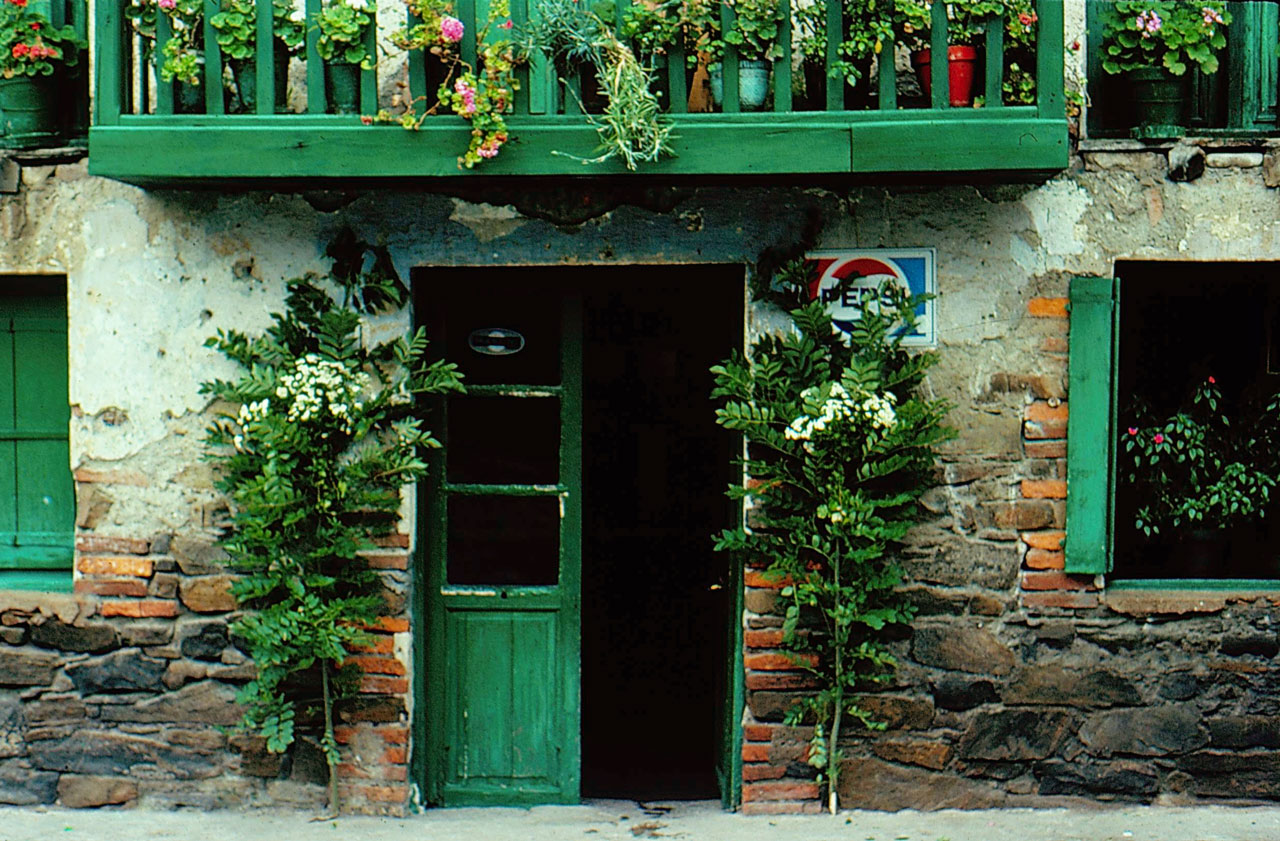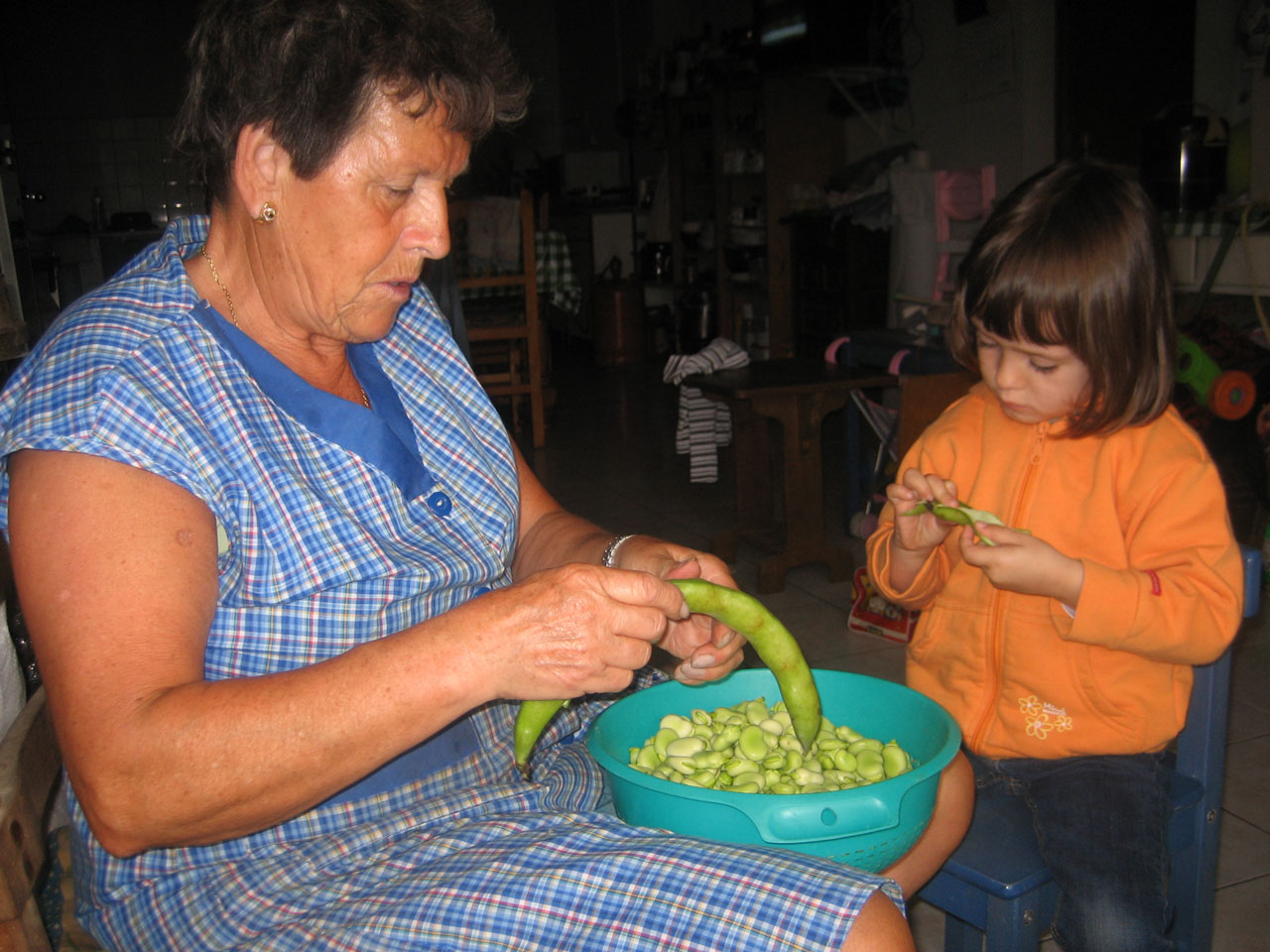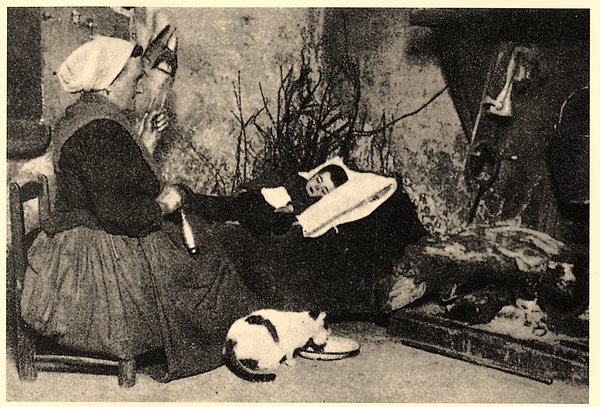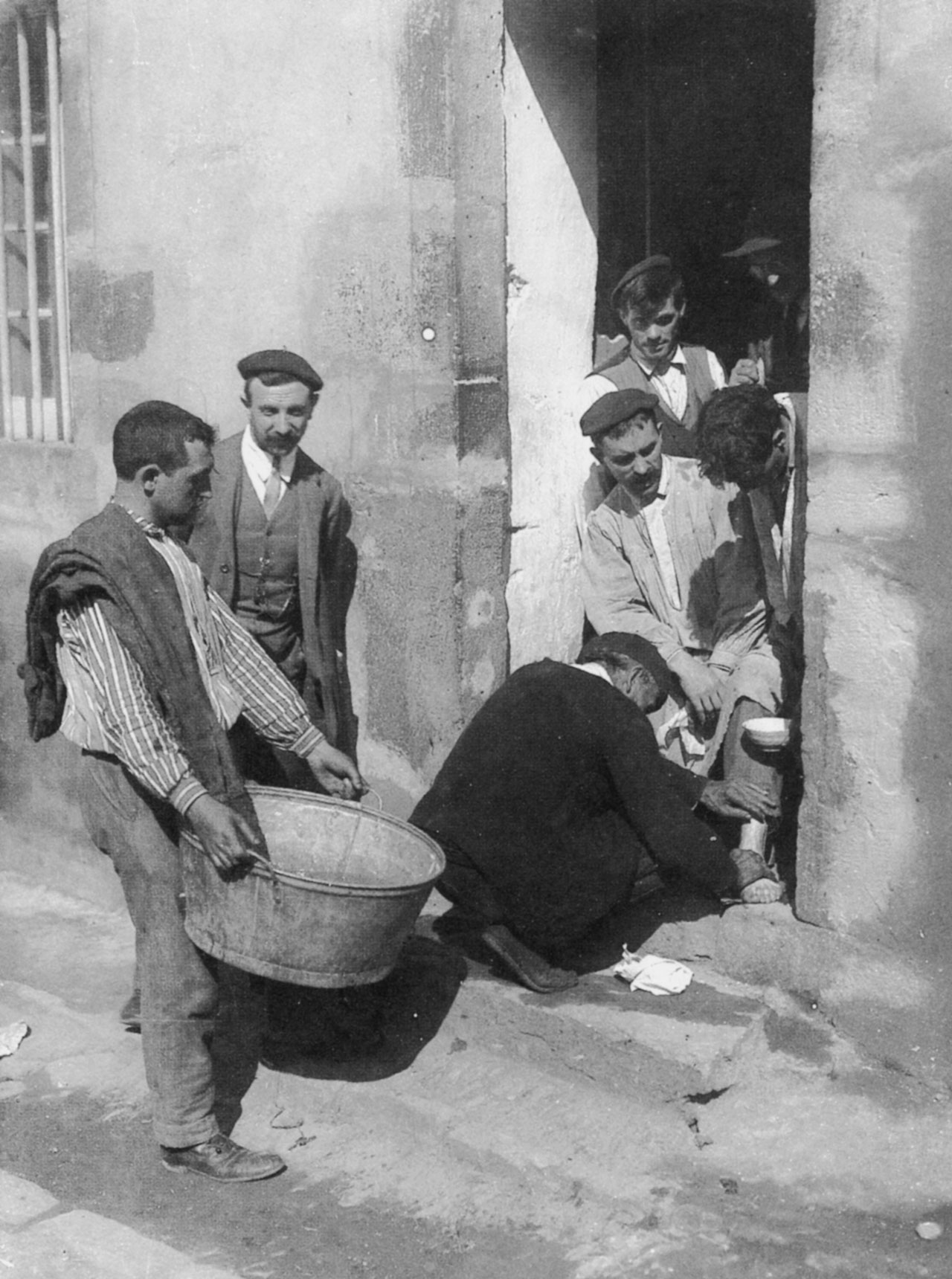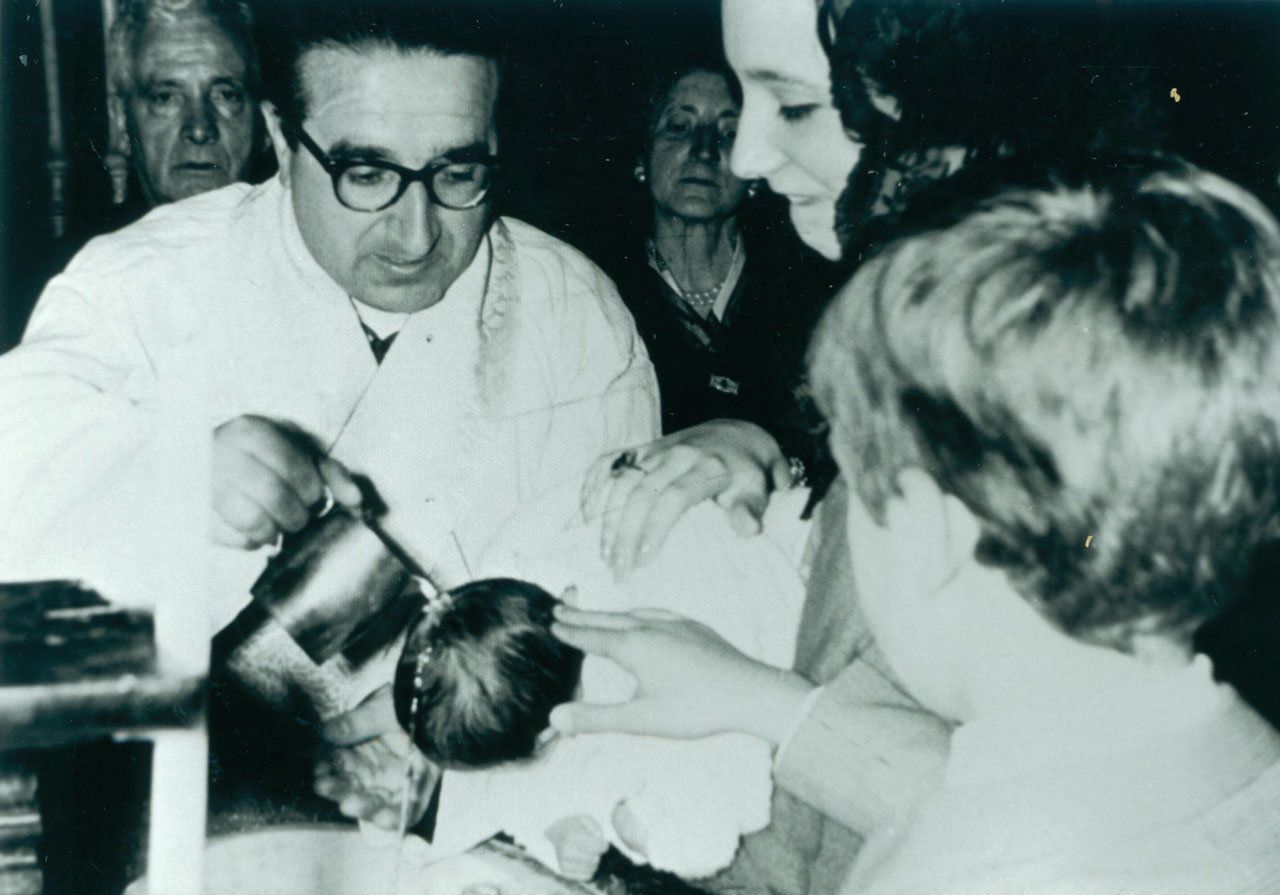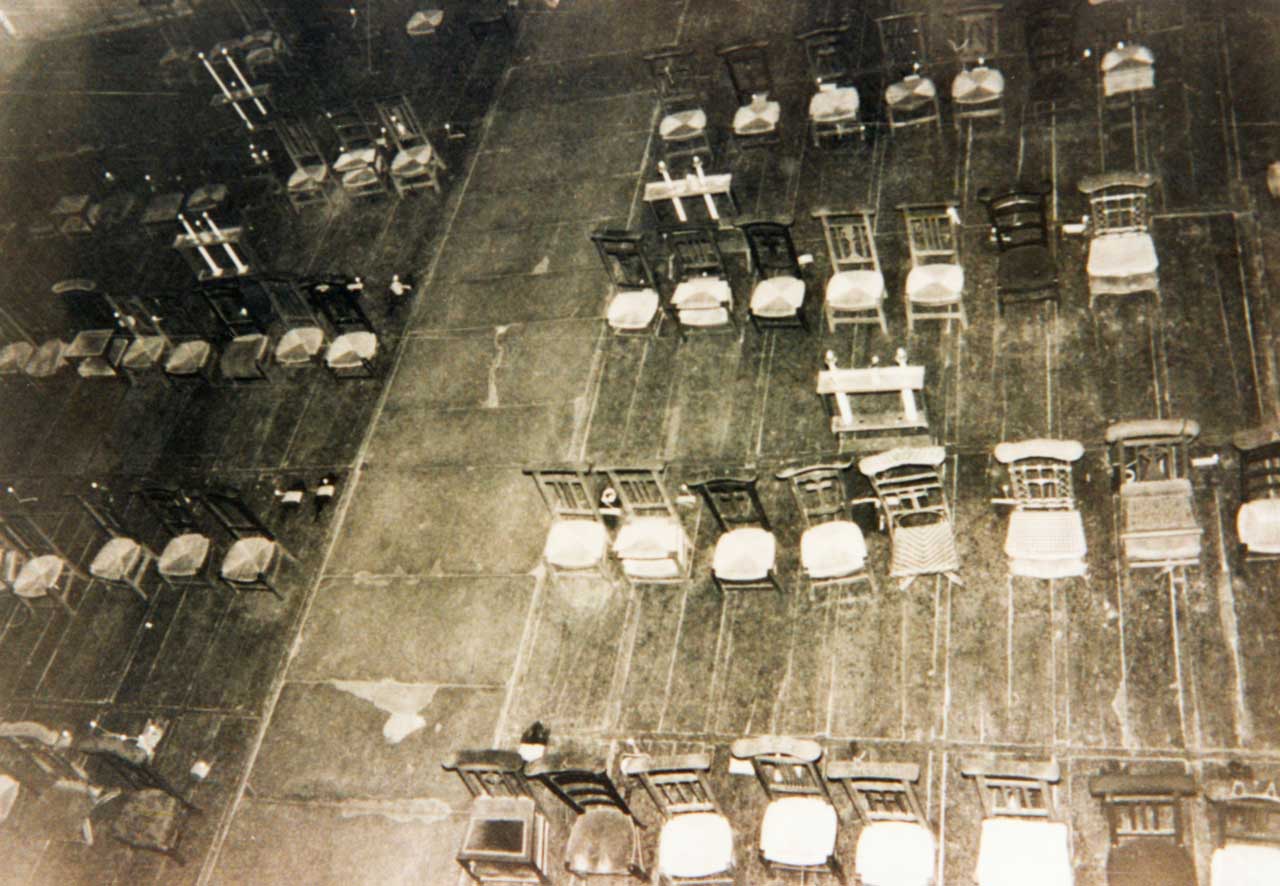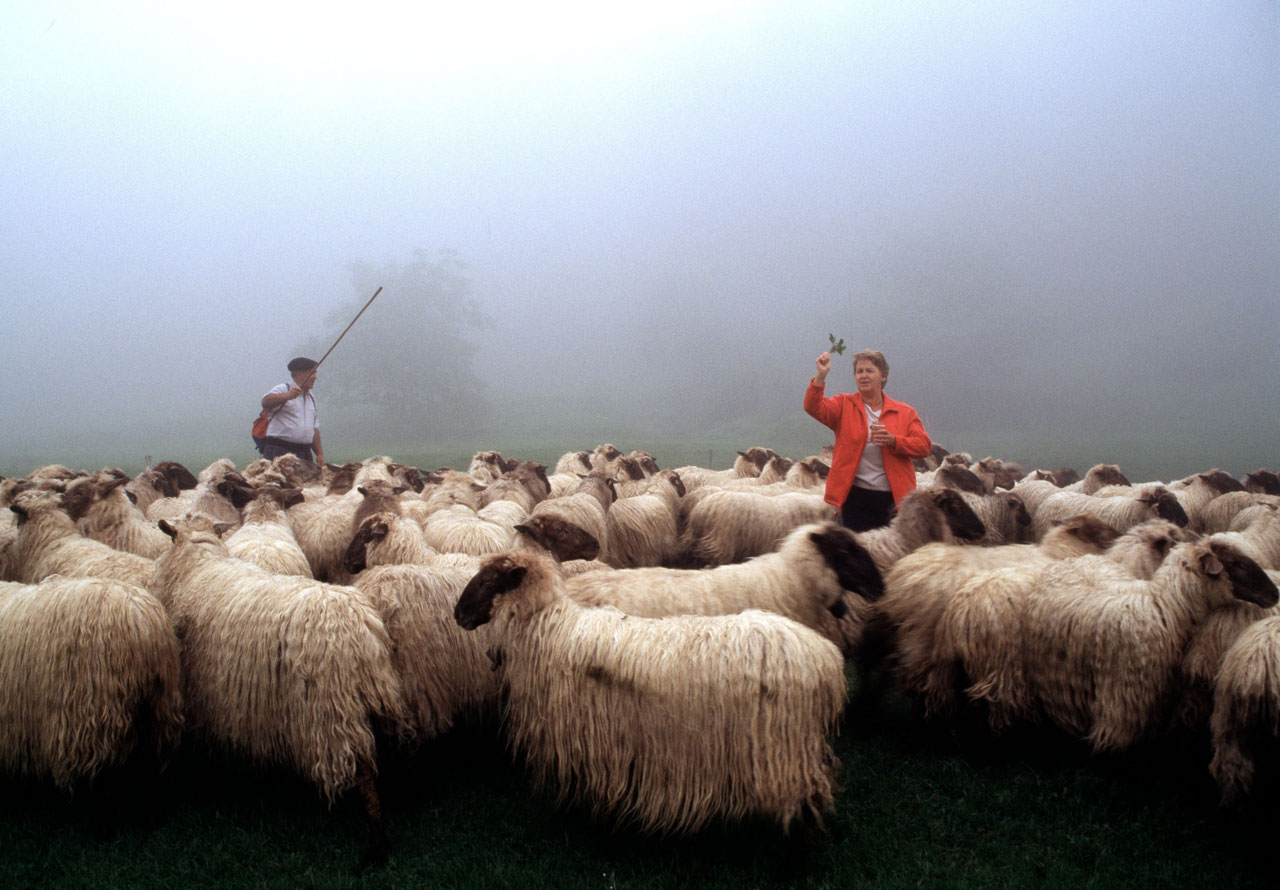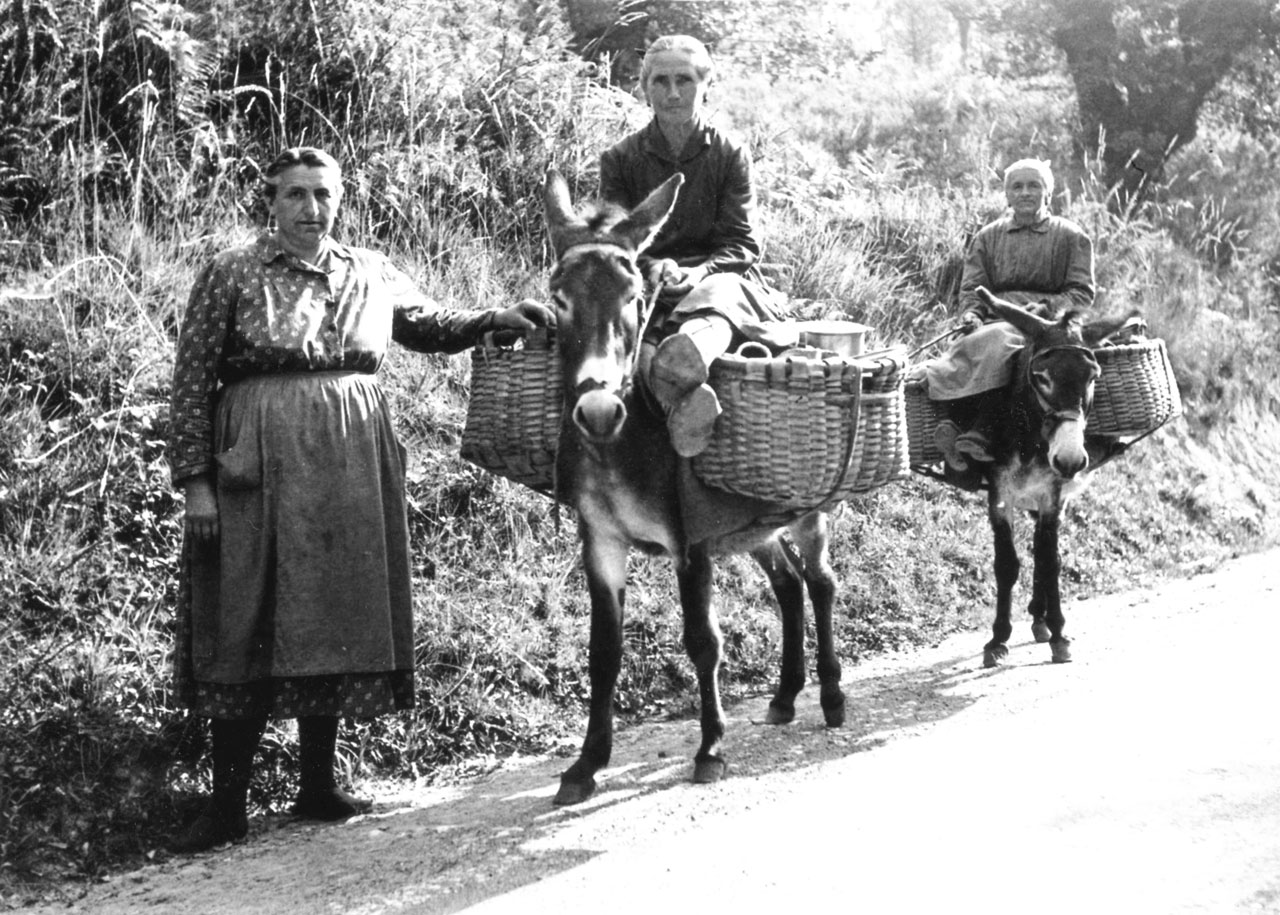Ethnographic Atlas of the Basque Country
De Atlas Etnográfico de Vasconia
Revisión del 13:20 11 mar 2020 de Admin (discusión | contribuciones)
St John’s bunches of branches and flowers. Zeanuri (B), 1980. Source: Ander Manterola, Etniker Euskalerria Groups.
House and Family in the Basque Country


House and Family in the Basque Country
Different types of rites, such as attaching the St. John’s branch, San Juan haretxa, to the doorposts, were performed around the St. John’s Day festivities.
Family Diet in the Basque Country


Family Diet in the Basque Country
Beans and broad beans were the most widely grown legumes and were traditionally an important part of the diet.
Children’s Games in the Basque Country


Children’s Games in the Basque Country
Obabatxua lo ta lo, zuk orain eta nik gero; zeuk gura dozun orduren baten, biok egingo dogu lo ta lo. Lullaby
Traditional Medicine in the Basque Country


Traditional Medicine in the Basque Country
Zantiratu, zan urrutu, zana bere lekuan sartu.Spell against sprains
Rites from Birth to Marriage in the Basque Country


Rites from Birth to Marriage in the Basque Country
After giving birth, women would remain confined for a period that ended with the rite of being churched, elizan sartzea.
Funeral Rites in the Basque Country


Funeral Rites in the Basque Country
Each homestead used to have a burial site inside the church’s nave. When burials were transferred to cemeteries, the once real burial site in church became a symbolic family grave, were offerings of light and bread were made to their dead.
Livestock Farming and Shepherding in the Basque Country


Livestock Farming and Shepherding in the Basque Country
Artaldearentzat artzain guti hobe ainitz baino. Too many cooks spoil the broth.
Agriculture in the Basque Country


Agriculture in the Basque Country
Our rural folk and our ancestors knew and practised agriculture on a more human scale and from a more holistic approach; it is not only the yield that matters, but also the complex network of physical factors and human beings involved in an activity that is actually based on cultivating the life that feeds us.
